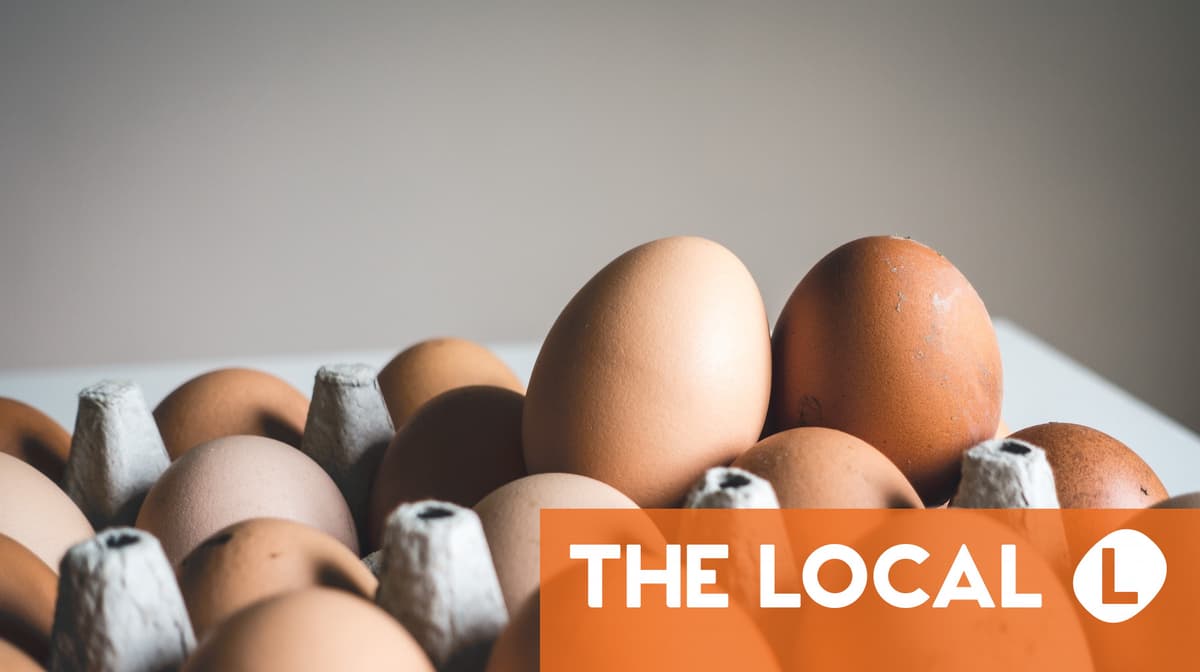Residents in Austria may have noticed a shortage of eggs on supermarket shelves, particularly of organic and free-range eggs.
The scarcity, which has impacted both consumers and businesses, is due to a combination of factors, including the after-effects of a severe bird flu outbreak last autumn and a spike in demand from the winter tourism season, Austrian media reported.
What caused the shortage?
Last autumn, bird flu devastated poultry farms across Europe, leading to the death of millions of laying hens.
In Austria alone, approximately 200,000 out of the country’s 7.3 million laying hens were lost. While domestic production is running at full capacity, the shortage has created ripple effects in the market.
READ ALSO: Einwegpfand: What you need to know about Austria’s new bottle deposit system
“We are noticing that traders who supply the food service industry and have previously traded in foreign eggs in Austria are currently finding it difficult to source eggs from abroad and, if at all, can only purchase very expensive goods,” said Michael Wurzer from the Poultry Industry Association, as reported by Der Standard.
This import shortage has forced domestic restaurants—particularly those in high-demand winter tourism regions—to rely heavily on Austrian eggs. This shift has further tightened supplies for retail consumers.
Advertisement
What does this mean for consumers?
Major retailers have acknowledged the strain but are optimistic about the overall supply.
Spar, for instance, has noted “a slight shortage of organic and free-range eggs at the moment ” but has reassured customers that eggs remain available, even if they might have to choose a different variety.
Similarly, the Rewe Group, which includes Billa and Penny, confirmed “occasional bottlenecks” in organic and free-range eggs, while Lidl stated that availability is currently “limited” but expected to normalise by Easter.
READ ALSO: The main words and expressions to know when you visit an Austrian supermarket
Hofer also reported higher demand for organic eggs, adding that long-term supply planning makes it challenging to respond quickly to sudden spikes in demand.
According to Wurzer, the tightest constraints are on organic eggs. “The supply of organic eggs, in particular, is actually very tight,” he said. However, he assured that “consumers will always be able to obtain sufficient domestic eggs from Austrian food retailers in the coming months.”
Advertisement
How long will shortages last?
Easter, traditionally a high-demand period for eggs, is still a few months away. Austrian media reported that producers and retailers are confident that supplies will stabilise well before then.
“Despite a high level of self-supply, availability in Austria is indeed limited at the moment,” Lidl stated. “However, we are confident that the situation will recover by Easter at the latest.”
While there might be some short-term disruption, things are looking up.
Austrian farms still produce 90 percent of the eggs consumed locally, keeping the supply chain fairly stable.
In the meantime, shoppers might need to be a bit flexible—trying out different types of eggs or buying a little earlier to get what they need.
READ NEXT: 10 ways to save money on your groceries in Austria
